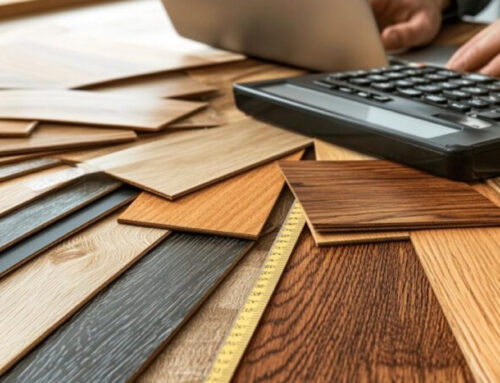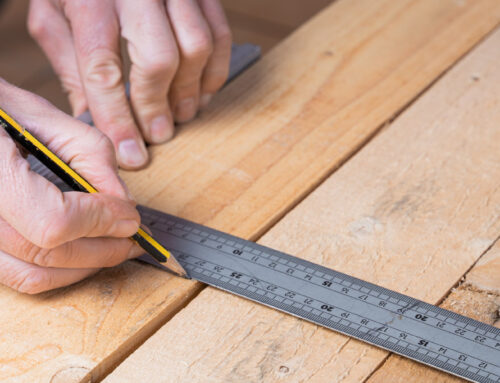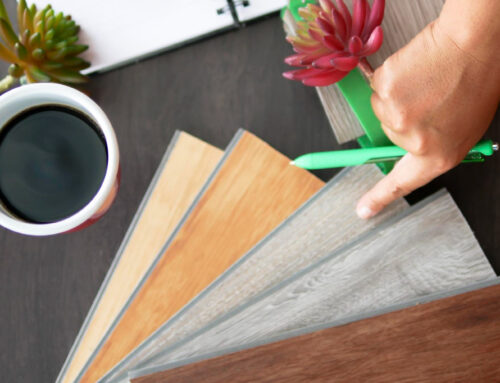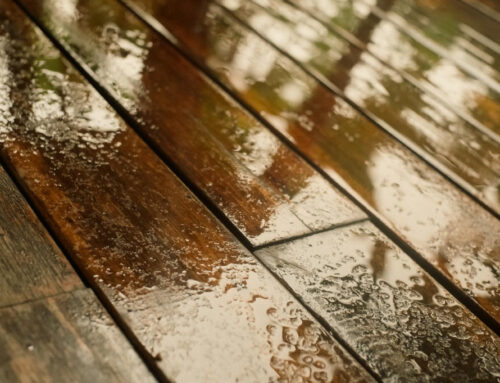Solid hardwood lasts 80–100 years and can be refinished many times, while engineered hardwood lasts 40–80 years, depending on veneer thickness. Choose solid if you want maximum longevity and refinishing flexibility. Choose engineered for below-grade spaces, better moisture resistance, and easier installation. Both add long-term value when properly maintained.
Choosing between engineered vs. solid hardwood flooring is one of the most important decisions you’ll make for your home. Solid hardwood typically lasts 80-100 years with proper care, while engineered hardwood lasts 40-80 years, depending on veneer thickness. However, the ‘better’ choice isn’t always about maximum lifespan. It depends on your home’s conditions, budget, and long-term plans.
The key difference lies in how each type handles moisture, refinishing potential, and environmental stress. Solid hardwood offers unmatched longevity and can be refinished 7-10 times over its lifetime. Engineered hardwood provides better stability in challenging conditions like basements or over radiant heat, making it the smarter choice in specific situations.
Our team at Rustic Wood Floor Supply offers expert guidance to help you select the perfect hardwood option that matches your home’s requirements and delivers lasting value. Get in touch with us to talk about your needs or browse our hardwood collection to find the ideal floor for your home!
See Flooring Options: https://rusticwoodfloorsupply.com/flooring/
What Is Engineered Hardwood?
Engineered hardwood features multiple wood layers bonded together with a real hardwood top layer. This construction creates a stable floor that resists warping and moisture better than solid wood.
Construction and Layers
Engineered planks have 3–12 layers of wood or composite materials, topped with a veneer between 0.6mm and 6mm. Thicker veneers greatly improve durability and allow more refinishing cycles.
High-quality engineered flooring uses hardwood cores with cross-grain construction. This design prevents warping and expansion better than solid wood in challenging environments.
Typical Lifespan
Engineered hardwood lifespan varies by veneer thickness:
- 0.6-2mm veneer: 20-40 years, limited refinishing
- 3-4mm veneer: 40-60 years, 1-2 refinishings possible
- 5-6mm veneer: 60-80 years, 3-4 refinishings possible
Premium engineered floors with thick veneers can be sanded and refinished multiple times, extending their usable life considerably.
Refinishing Options
Engineered hardwood refinishing depends on veneer thickness. Thin veneers under 2mm cannot be refinished at all. Medium veneers allow light sanding once or twice. Any deeper sanding risks exposing the core layers beneath the wood surface.
Thick veneers of 4mm or more support several refinishing cycles. Each refinishing removes surface damage and restores the floor’s original beauty completely. Professional refinishers can safely remove up to 1mm of material per cycle without compromising the floor’s integrity.
Application and Uses
Engineered hardwood works well in basements, over radiant heating systems, and in humidity-prone areas. It installs faster than solid hardwood and costs 15-30% less initially.
The multi-layer construction provides dimensional stability. This makes it suitable for wider planks and longer lengths without gapping or cupping issues. Many manufacturers confidently offer engineered planks up to 9 inches wide thanks to this superior stability.
What Is Solid Hardwood?
Solid hardwood flooring consists of single pieces of wood milled from tree trunks. Each plank is 100% hardwood from top to bottom, offering unmatched authenticity and longevity.
Pure Wood Composition
Standard solid hardwood measures 3/4 inch thick, though some products come in 5/16 inch or 1/2 inch thicknesses. The uniform wood construction allows deep sanding and multiple refinishing cycles.
Solid planks are available in various widths from 2.25 inches to 7 inches or more. Wider planks show more wood character but may experience more movement with humidity changes.
Lifespan and Durability
Here’s where solid hardwood becomes legendary. Properly maintained floors easily last 80-100 years, with some historic homes sporting original floors from the 1800s.
The secret lies in that thick construction. Unlike engineered floors with limited veneers, solid hardwood can be sanded down 7-10 times over its lifetime.
Each refinishing cycle removes scratches, dents, and wear completely. It’s like getting brand new floors every 10-15 years without replacement costs.
Refinishing & Restoration Potential
Solid hardwood refinishing is an art form. Professional sanders can remove up to 1/16 inch of wood surface, erasing decades of damage in one process.
- Deep scratches from pets → Gone
- Water stains and discoloration → Eliminated
- Heavy traffic wear patterns → Completely restored
This restoration ability makes solid hardwood incredibly valuable for busy families. No matter what life throws at your floors, they can be brought back to perfection.
Usage Scenarios
Traditional installation methods like nail-down create a permanent floor that adds significant property value. Many homeowners prefer solid hardwood for its heritage and craftsmanship appeal.
Solid hardwood works best above grade in climate-controlled environments. It requires careful humidity control but rewards owners with unmatched beauty and longevity.
Want to upgrade your home with flooring that matches your lifestyle perfectly?
Our hardwood specialists at Rustic Wood Floor Supply help you choose between engineered and solid options based on your specific needs and environment.
Talk To Experts: (678) 691-0533
7 Key Differences Between Engineered and Solid Hardwood
Understanding the core differences between these flooring types helps you make an informed choice. Each option has unique strengths that suit different situations and budgets.
-
Composition and Structure
Solid hardwood is milled from single pieces of wood with uniform thickness throughout. Engineered hardwood combines multiple layers with a hardwood veneer on top.
The layered construction of engineered flooring provides better dimensional stability. Solid hardwood’s single-piece construction allows deeper refinishing but less stability in challenging conditions.
-
Dimensions and Plank Widths
Solid hardwood comes in standard thicknesses of 3/4 inch, 5/8 inch, and 1/2 inch. Engineered planks range from 3/8 inch to 3/4 inch thick.
Both types offer various plank widths, but engineered hardwood can achieve wider planks more successfully. The layered construction reduces movement that causes problems in wide, solid planks.
-
Installation Methods
Solid hardwood typically requires nail-down installation over a wood subfloor. Some thinner solid products allow floating installation with glue.
Engineered hardwood offers more installation flexibility. It can be nailed, glued, or floated over various subfloor types, including concrete and existing flooring.
-
Moisture and Climate Resistance
Engineered vs. solid hardwood performance differs significantly in challenging environments. Engineered flooring handles moisture and temperature changes better due to its cross-grain construction.
Solid hardwood expands and contracts more with seasonal changes. It can cup, crown, or gap when humidity fluctuates beyond 30-50% relative humidity ranges.
-
Lifespan and Maintenance
Solid hardwood lasts 80-100 years with proper care, while engineered hardwood lasts 40-80 years, depending on veneer thickness. Both require regular cleaning and protection from moisture.
Maintenance needs differ between the types. Solid hardwood requires more careful environmental control but offers greater restoration potential through multiple refinishing cycles.
-
Cost and Value
Initial costs favor engineered hardwood by 15-30%, but long-term value calculations vary. Solid hardwood provides better value in permanent installations due to its refinishing potential.
Engineered hardwood suits shorter-term housing or rental properties where lower upfront costs matter more than maximum longevity potential.
-
Environmental Impact
Engineered hardwood uses less solid wood per square foot, making it more resource-efficient. The manufacturing process utilizes smaller wood pieces and fast-growing species for core layers.
Solid hardwood floors can be completely recycled or repurposed after their useful life. The single-material construction simplifies reclamation and reuse processes significantly.
Durability and Longevity Comparison
Real-world performance depends on multiple factors beyond just material type. Installation quality, environmental conditions, and maintenance practices all impact how long your floors will last.
Lifespan Range of Each Type
Solid unfininshed hardwood wins in pure longevity, lasting 80-100 years versus engineered hardwood’s 40-80 years. However, engineered flooring performs better in challenging conditions where solid hardwood might fail prematurely.
Industry data shows high-quality engineered floors with 4mm+ veneers can match solid hardwood performance in many applications. The key difference is the refinishing potential over decades.
Factors Impacting Longevity (Quality, Installation, Traffic)
Wood grade significantly impacts longevity for both flooring types. Select and premium grades have fewer defects and last longer than lower grades with more knots. Higher grades also refinish more smoothly because there are fewer weak spots that can cause tear-out during sanding.
Several key factors determine how long your hardwood floors will actually last:
- Traffic patterns: High-traffic areas like hallways wear faster than bedrooms
- Pet activity: Dogs and cats can significantly reduce their lifespan through scratches and accidents
- Maintenance routine: Regular cleaning and prompt spill cleanup prevent premature damage
- Environmental control: Stable humidity levels prevent cupping, crowning, and gaps
Construction quality matters more than flooring type in many cases. Poor installation reduces any floor’s lifespan regardless of material choice or initial quality.
Performance in High-Stress Areas (Pets, Kitchens, Basements)
- Pet owners often choose solid hardwood for its refinishing ability. Deep scratches and wear patterns can be completely removed during refinishing cycles.
- Kitchen installations favor engineered hardwood for moisture resistance. Solid hardwood can warp or cup near dishwashers and sinks despite proper sealing.
- Basement installations require engineered flooring with appropriate moisture barriers. Solid hardwood will likely fail in basement environments due to humidity and potential flooding.
Cost vs. Longevity Analysis
Understanding the total cost of ownership helps you make the best financial decision. Initial price differences often balance out over time through maintenance and replacement costs.
Price Breakdown
20-year cost comparison:
- Engineered: $8-12 per square foot installed
- Solid: $10-15 per square foot installed
50-year cost comparison:
- Engineered: May require replacement ($16-24 total)
- Solid: Requires 2-3 refinishings ($13-20 total)
Value Over Time
Solid hardwood provides better long-term value in permanent installations. The ability to refinish multiple times extends usable life significantly beyond initial expectations.
Engineered hardwood suits shorter-term housing or challenging environments better. Lower upfront costs and better stability can offset reduced longevity in specific situations.
Quick Decision Guide
Making the right choice requires considering your specific situation. These tools help you evaluate options based on your home’s conditions and your long-term plans.
Interactive Flowchart for Choosing
Step 1: Is your installation above grade?
- Yes → Consider both options
- No → Choose engineered hardwood
Step 2: Do you have radiant heat or high humidity?
- Yes → Choose engineered hardwood
- No → Both options work well
Step 3: Is this a forever home?
- Yes → Consider solid hardwood for maximum longevity
- No → Engineered offers good value
Step 4: Budget for 50+ years?
- Yes → Solid hardwood provides better long-term value
- No → Engineered costs less upfront
Step 5: Want maximum refinishing potential?
- Yes → Solid hardwood allows 7-10 refinishings
- No → Thick-veneer engineered provides adequate options
| Factor | Solid Hardwood | Engineered Hardwood |
| Lifespan | 80-100 years | 40-80 years |
| Refinishing | 7-10 times | 0-4 times |
| Moisture Resistance | Poor | Good |
| Installation Cost | Higher | Lower |
| Long-term Value | Excellent | Good |
| Basement Suitable | No | Yes |
| Radiant Heat | Limited | Excellent |
| Authenticity | 100% wood | Wood veneer top |
Final Note
Engineered vs. solid hardwood longevity depends on your specific situation more than absolute performance differences. Solid hardwood lasts longer in ideal conditions, but engineered hardwood performs better in challenging environments.
Choose solid hardwood for permanent installations in stable environments where maximum refinishing potential matters. Select engineered hardwood for moisture-prone areas, over radiant heat, or when upfront costs are a primary concern. Both options provide excellent value when properly installed and maintained.
At Rustic Wood Floor Supply, we believe every home deserves flooring that grows more beautiful with time. Our curated collection of premium solid and engineered hardwood comes with expert installation support and lifetime guidance. Whether you’re creating your dream kitchen or restoring a historic home, we’ll help you choose flooring that perfectly matches your vision and stands the test of time.
Don’t leave your flooring investment to chance when expert guidance is just a phone call away. Contact us for a personalized consultation that ensures your hardwood choice delivers decades of beauty and value.
Frequently Asked Questions
Which lasts longer: engineered hardwood or solid hardwood flooring?
Solid hardwood typically lasts 80-100 years with proper maintenance, while engineered hardwood lasts 40-80 years, depending on veneer thickness. However, engineered flooring may outlast solid hardwood in high-moisture environments where dimensional stability matters more than raw longevity potential.
Can engineered hardwood be refinished like solid hardwood?
Engineered hardwood can be refinished 0-4 times, depending on veneer thickness, while solid hardwood allows 7-10 refinishing cycles. Engineered floors with veneers under 3mm cannot be refinished, but thicker veneers (4-6mm) support multiple refinishing cycles throughout their lifespan.
How do humidity and moisture affect engineered and solid hardwood?
Engineered hardwood handles humidity changes better due to cross-grain construction that resists expansion and contraction. Solid hardwood is more susceptible to cupping, crowning, and gapping when humidity fluctuates outside the ideal 30-50% range, potentially reducing its effective lifespan significantly.
Is engineered hardwood cheaper than solid hardwood?
Engineered hardwood costs 15-30% less initially than solid hardwood, but long-term value varies. Over 50 years, solid hardwood may cost less due to refinishing versus replacement needs. Initial savings with engineered flooring can offset higher long-term costs in shorter-term installations.
Author Profile
- I have worked in hardwood flooring for the last 8 years. Use to run a company of residential crews as well as a company with gym flooring. If you need floor installation or refinishing help, I should have an answer or at least get you in the right direction.
Latest entries
 FlooringJanuary 15, 2026Does New Hardwood Flooring Increase Your Home Value?
FlooringJanuary 15, 2026Does New Hardwood Flooring Increase Your Home Value?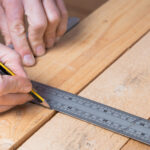 FlooringJanuary 14, 2026Can You Refinish Engineered Hardwood?
FlooringJanuary 14, 2026Can You Refinish Engineered Hardwood? FlooringJanuary 10, 2026What Wood Floor Color Do I Choose?
FlooringJanuary 10, 2026What Wood Floor Color Do I Choose?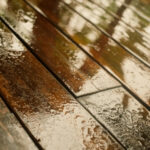 FlooringJanuary 9, 2026How To Prevent Hardwood Floor Moisture Problems?
FlooringJanuary 9, 2026How To Prevent Hardwood Floor Moisture Problems?

